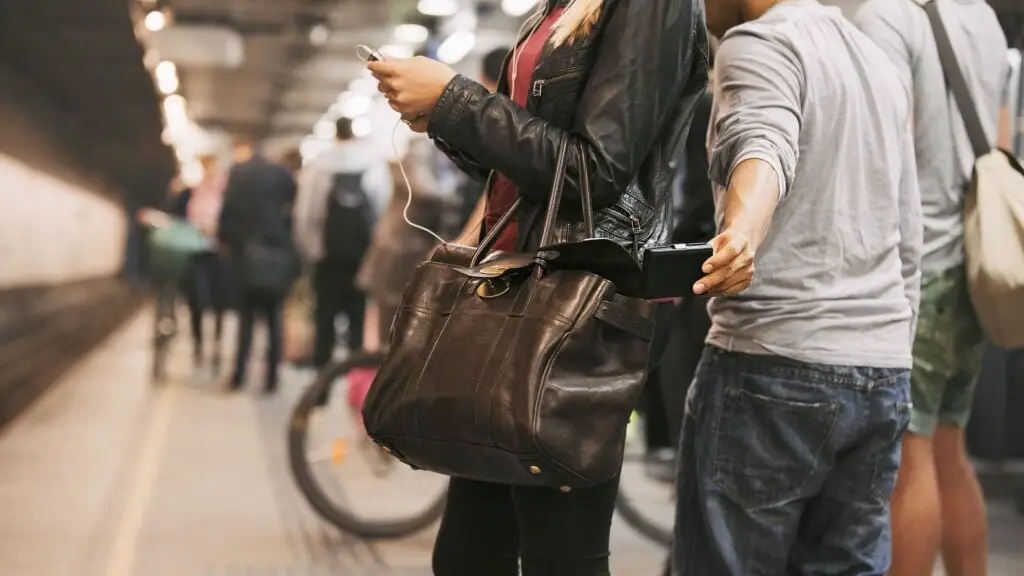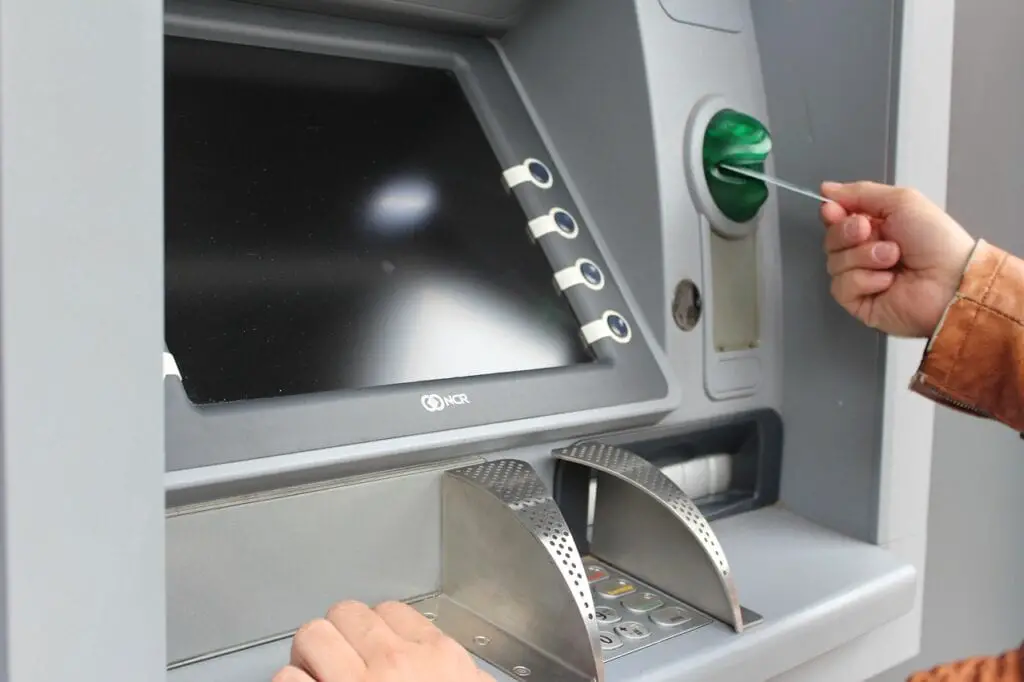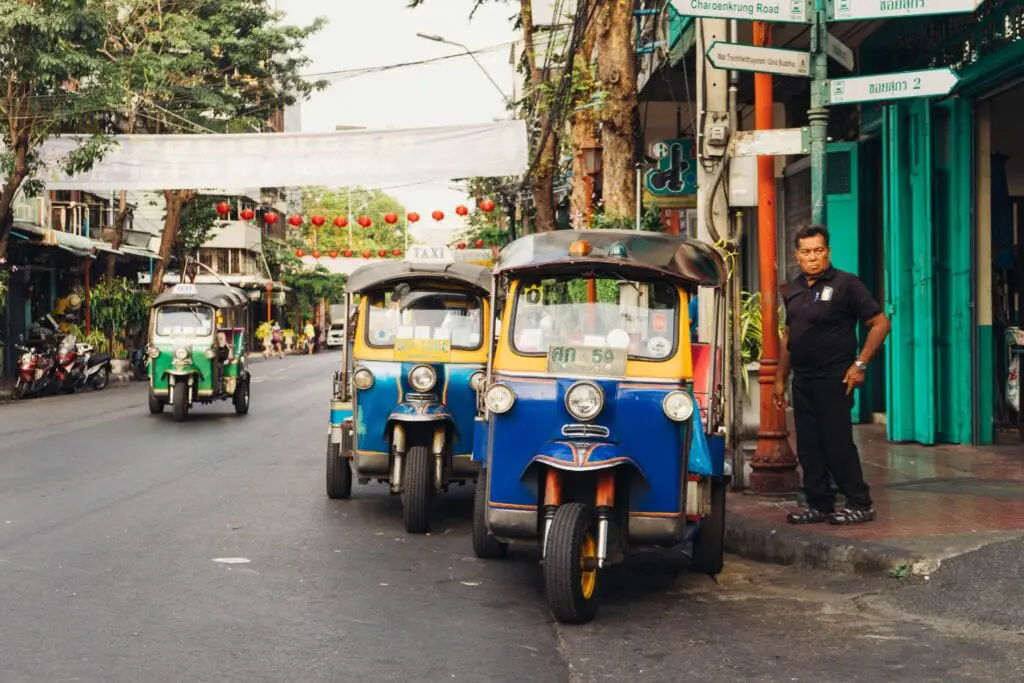Every traveler wants a safe and enjoyable trip. Unfortunately, scams and tourist traps can ruin even the most exciting adventure.
Learning how to spot common travel scams and avoid typical pitfalls is the best way to protect your money and your peace of mind. Scammers target tourists with tricks that often seem harmless or confusing at first. But with the right knowledge, you can spot these schemes before they get you.
Some of the most common scams include fake taxi fares, counterfeit money, and fraudulent tour operators. Spotting these scams early helps you avoid losing cash or valuables.
Simple safety habits work wonders—research your destination, keep your things close, and be cautious when strangers get too friendly. If you want to get ahead of the game, check out these common travel scams and how to dodge them.
Key Takeaways
- Know the most common travel scams and how to spot them.
- Follow simple tips to avoid falling victim during your trip.
- Stay alert and make smart choices to keep your travels safe.

Recognizing Common Travel Scams
Many travelers run into scams that target their money, belongings, or personal info. Learning about the most common tactics makes every trip safer and a lot less stressful.
Frequent Tourist Scams Around the World
Pickpocketing is everywhere. Thieves love busy markets and packed buses. Someone might bump into you, and while you’re distracted, another person grabs your wallet.
Taxi scams happen all the time too. Some drivers use broken meters or drag out the route to charge extra. Others claim your hotel is “closed” or “moved,” then take you somewhere that pays them a commission.
Overpriced drinks in bars are another headache—tourists get lured in, then stuck with a huge bill before they can leave. Want more examples? Check The Planet D and TravelFreak for the nitty-gritty.
Fake charities, friendship bands, and “free gift” offers are all ways scammers squeeze money out of visitors. Sometimes “officials” ask for your passport, then demand a fee to give it back.
How Scam Artists Operate
Scam artists usually work in groups and count on distractions. One person might chat you up, ask for help, or cause a scene. While you’re busy, someone else acts fast.
Emotions play a big part—urgency or friendliness are their favorite tools. A scammer might act super polite or claim there’s an emergency. They’ll offer “help” you didn’t ask for, like directions or carrying your bag.
Most scam artists blend in. They don’t look suspicious and they practice their tricks until everything seems normal.
Spotting Red Flags While Traveling
Protect yourself by knowing what to watch for. Unexpected offers from strangers—to help with bags, buy tickets, or exchange money—should make you pause.
If someone tries to rush you or gives a complicated story, stop and think. Scammers sometimes use fake uniforms or badges, so always check official ID if police or staff approach you.
Red flags include requests for upfront fees, sensitive info, or sudden changes in your travel plans. If prices seem off or someone is too pushy, just say no. For more practical tips, check these common travel scams and how to sidestep them.

Typical Scam Scenarios and How to Avoid Them
Travelers lose money and personal items to scams that look harmless at first. Once you know how these scams work, it’s easier to keep your stuff safe and your credit card details private.
The ATM Scam Explained
ATM scams target tourists in busy city centers and airports. Some crooks install fake card readers—skimmers—on machines. These gadgets copy your card info when you insert it. Hidden cameras sometimes record your PIN too.
To avoid ATM scams:
- Stick to ATMs inside banks or trusted spots, not random ones on the street.
- Look for anything odd or loose around the card slot and keypad.
- Cover the keypad with your hand when you enter your PIN.
- Politely refuse help from strangers, no matter how friendly they seem.
If a machine swallows your card or acts weird, tell the bank right away. For more tips, check out common travel scams.
Pickpockets and the Bump and Grab Tactic
Pickpocketing happens a lot in tourist hotspots and crowded public transport. The “bump and grab” is classic: someone bumps you, you get distracted, and a second thief grabs your wallet, phone, or passport.
Here’s how to lower your risk:
- Keep valuables in a zippered bag.
- Wear cross-body purses or bags in front.
- Don’t put your wallet in your back pocket.
- Split up your important stuff—cash, cards, documents—in different places.
Stay sharp in busy areas and keep your eyes open. For more on avoiding pickpockets, check the advice at pickpockets and the bump and grab tactic.
Taxi Scams and Overcharging
Taxi scams are common—drivers overcharge or take the long way to inflate the fare. Some claim the meter’s broken, or set it to a higher rate meant for someone else. Unlicensed taxis sometimes hang around tourist spots, waiting to charge crazy prices.
Here’s what helps:
- Agree on the fare or make sure the meter’s on before you go.
- Stick with official taxis or trusted ride-hailing apps.
- Avoid taxis parked right outside big attractions, where scams are common.
- Check the basic route and expected price online before you ride.
If the fare’s way too high, don’t argue—pay, get out, and jot down the license number if you need to. More examples of taxi scams and overcharging are easy to find online.

Region-Specific Scams and Safety Advice
Depending on where you go, you’ll run into unique scams. Some tricks target tourists and can cost you money, your stuff, or just waste your precious travel time.
Notorious Scams in Thailand and Bangkok
Bangkok’s famous for a few scams that catch visitors by surprise. Tuk-tuk or taxi drivers might promise a “special deal” or “secret spot,” then take you to jewelry shops or tailor stores. You’ll face pushy salespeople and sky-high prices.
Pickpocketing happens in crowded spots and markets. Keep your valuables in front pockets and use bags that close tight. The jet-ski or motorbike rental scam is another favorite—rent a vehicle, return it, and suddenly you’re accused of damage and hit with a giant repair bill. Snapping photos of rentals before you use them can save you a headache.
At temples or busy places, fake officials sometimes demand tickets or “donations” that aren’t real. Always double-check fees at the official entrance before paying. For more on scams in Thailand, check Miss Tourist’s list of travel scams.
Tourist Traps and the Attraction is Closed Trick
In cities like Bangkok, the “attraction is closed” scam is everywhere. Someone—sometimes in uniform—tells you a big sight, like the Grand Palace, is closed for a holiday or private event. Then they push you toward a jewelry store or another spot, where you’ll overpay for goods or tours.
To dodge this scam:
- Walk to the main entrance to check if it’s really closed.
- Ignore anyone who tries to redirect you before you get to the gate.
- Check official hours online or ask at your hotel.
If someone’s too insistent or pushy, just walk away. Real attractions almost never close suddenly without warning. For more on these cons, see TravelFreak’s guide to common travel scams.
Common Issues Travelers Face in India
India’s packed with beautiful sights, but tourists run into fake guides, inflated prices, and bogus train tickets. At train stations or landmarks, fake “officials” might offer help, then demand payment or give bad info.
Taxis and rickshaws in big cities like Delhi or Mumbai might refuse the meter and quote a high price instead. Always agree on a price first or insist on the meter. Haggling is normal in markets, but check prices at a few stalls before buying.
Carry copies of important documents and keep valuables out of sight in busy areas. Persistent beggars or street sellers might follow you, but a firm “no” and walking away usually works. For more on region-specific scams, check Expert Vagabond’s advice and Global Rescue.

Deceptive Tactics and Psychological Manipulation
Scams often play on human behavior, emotions, and even technology. Many target tourists by faking kindness or urgency. It’s all too easy to let your guard down when someone seems nice or in need.
Dealing with Friendly Locals and Flirtatious Approaches
Some scammers act like friendly locals offering help, directions, or invitations. They might start a chat, give you a compliment, or flirt to get you to relax. Once you trust them, they could lead you to an expensive bar or shop where prices are way above normal.
Be careful if a stranger is too enthusiastic, especially in busy areas. Stay alert, politely decline invitations, and stick to public places. Don’t share personal info or travel plans with people you just met.
This type of scam pops up in busy tourist cities and nightlife spots. It preys on trust, curiosity, and sometimes loneliness. Keeping a little healthy suspicion goes a long way.
Free Bracelets and Injured Beggars Scams
Some scammers use sympathy or surprise. One trick: someone offers a “free” bracelet or small gift, then asks for money or distracts you so a pickpocket can strike. You might also see people faking injuries, asking for cash, or pretending they need help.
Watch out for pushy behavior if you refuse a gift, crowds that appear out of nowhere, or aggressive demands for money. Say “no” firmly, keep your valuables tucked away, and keep moving if someone seems off.
Staying alert helps avoid these scams. Don’t let anyone create a sense of urgency or block your path.
Risks of Fake Websites and Online Bookings
Online scammers set up fake booking sites and send phishing emails to trick travelers into sharing credit card or passport details.
These websites look convincing, but they steal money or personal data. Some people arrive to find their reservation doesn’t exist, or they get overcharged.
To stay safe, book only through official or well-known travel platforms. Always check the company’s reviews, website address, and payment security before entering details.
Don’t click suspicious links in emails or social media. If a deal seems way too good, it probably is.
Strong passwords and two-factor authentication give you another layer of protection. It’s worth learning how to spot fake travel websites so you can avoid online traps.

Travel Safety Tips for Avoiding Scams
Knowing how to spot warning signs can really cut down your risk of falling for tourist scams. Simple strategies to protect your info, money, and belongings make travel a lot less stressful.
Trust Your Instincts
Listening to your gut is a big part of travel safety. If something feels off—even if it looks harmless—it’s usually best to walk away or just say no.
Scammers often rush tourists into quick decisions. Take a second to check details before paying or sharing your info.
Notice the small stuff, like someone being overly friendly, dodging your questions, or pushing you to buy right now. Recognizing when something feels weird is a skill every traveler should work on.
Fake street performers, unofficial guides, and taxi drivers who won’t use the meter are all situations where your instincts can save you. If you feel uneasy, it’s totally fine to be cautious and move on.
Practical Advice for Protecting Yourself
Protecting yourself from scams doesn’t have to be complicated. Split up your cash, cards, and important documents so you’re not carrying everything in one spot.
Use a cross-body bag or money belt to make life harder for pickpockets. Be extra careful at ATMs—pick ones inside banks or hotels instead of those out on busy streets.
Always double-check website addresses before booking trips or buying tickets online. Never share credit card or passport info unless you’re sure the person or website is legit.
Stay alert in crowds and watch for common tricks. If someone spills something on you, tries to distract you, or gets way too close, remember these are classic scams—like the “bump and grab” or distraction techniques mentioned at The Planet D.
Building a Positive Travel Experience
Safety habits don’t have to ruin your trip—they can actually make it better. Booking with well-reviewed tour companies and checking ratings helps you avoid tourist traps.
Take a little time to learn about local customs and common scams in each place you visit. Recent reports on avoiding traveler and tourist scams are worth a look.
Chatting with hotel staff or other travelers can clue you in to new warnings and helpful tips. Staying aware of your surroundings helps you avoid scams—and lets you relax and focus on the good stuff, like sightseeing, meeting locals, or trying new foods.

Frequently Asked Questions
Travelers need to know how to spot warning signs and check if a business is trustworthy. Recognizing scams and staying alert helps people avoid losing money or falling for tricks.
What are some signs of a scam when booking travel accommodations online?
Fake listings often use super low prices or push you to decide fast with pressure tactics. Watch out for poor grammar and missing contact details.
Unfamiliar payment methods, like wire transfers, are risky. Always book through trusted platforms and check reviews from other guests.
Look for properties with lots of photos and consistent info. More tips are in this guide to avoiding travel scams.
How can I protect myself from street hustles and pickpocketing while traveling?
Pickpockets love crowded tourist spots. They use distractions like bumped shoulders or staged arguments.
Carry your bag close and keep valuables hidden. If someone approaches with odd questions or tries to touch you, be careful.
A money belt or hidden pouch for passports and cash helps a lot. Stay alert in busy places and avoid showing off large amounts of money.
Learn more about common travel safety tips.
What should I be aware of to avoid tourist traps when visiting a new city?
Tourist traps usually charge more for basic stuff or offer tours with little value. They’re often right by famous attractions and use flashy ads.
Staff might get pushy or hype up fake deals. Look for places with good reviews from real travelers and ask locals for honest tips.
Try eating or shopping a few blocks away from big landmarks—you’ll probably get a better experience. Check out advice for avoiding tourist scams by country.
In which ways can I deal with aggressive street vendors without being scammed?
Aggressive vendors might overcharge or sell fake goods. Some use hard selling or try to make you feel guilty if you say no.
Be polite but firm—just say no and keep moving if you’re not interested. Don’t handle their merchandise or give out personal info.
Stay aware of prices and never feel forced to buy something you don’t want. For more on street scams, see this ultimate guide to travel scams.
What tactics do scammers use to target tourists in Europe and how can I avoid them?
Scammers in Europe often use distraction tricks, like spilling something on you or pretending they need help. Fake petitions and friendship bracelets are common, too.
Some pretend to be police and ask to see your wallet. Don’t let strangers handle your stuff, and always ask for official ID if someone claims to be an authority.
More details are in this list of common travel scams.
How can I verify the legitimacy of a travel agency or tour company?
First off, check if the agency lists a real address and a working phone number. If they have a professional website, that’s usually a good sign.
See if they’re members of official tourism groups or associations. I always peek at past customer reviews on trusted sites—people tend to be honest when things go wrong.
Honestly, if a company wants you to pay by wire transfer or cash, that’s a red flag. Stick with well-known payment methods, and don’t fall for deals that look way too good to be real.
You can find more tips for safe booking in this country-by-country guide. It’s worth a look before you book anything.
You Might Also Like:
If you enjoyed this post on Travel Safety Tips: Essential Advice for a Secure Trip, you might also like: Travel Safety: Essential Advice for a secure trip, Solo Travel for Women: A Fearless Guide to the World, Discover the Best Travel Health Insurance for Your Trip
